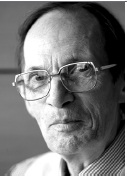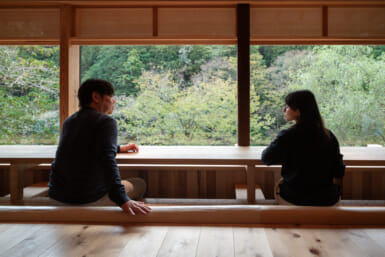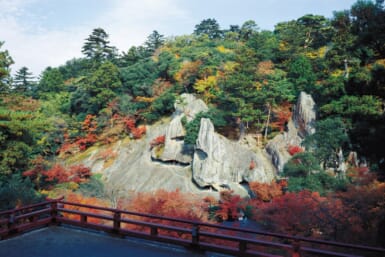by Henry Scott Stokes
Not long ago a friend of mine in England urged me to write a column about the yakuza.
I hesitated. What did I have to say on the subject that was new? But I made up my mind to write. I did so because there are visitors to this country who do not know the score.
Not that I consider myself particularly well informed. But on the other hand, I have been troubled in recent years by the obvious signs that our friends the yachan are alive and kickin’…
When I first came here—back in the ’60s—I found them entertaining. Or putting it differently, I found that the stars who portrayed the yakuza in the movies—Koji Tsuruta, Junko Fuji—had lots and lots of oomph.
I hung up a poster of Junko in my office—partly to tease my Japanese staff, mainly because she looked so damned good, holding a little gun in her hand, dressed up in kimono.
I would attempt a rendering, when tipsy, of a yakuza ditty. Senaka de naite iru, Karajishi Botan… a song about a bad guy with a flagrant peony design tattooed on his back.
I sang it dreadfully, but there was something about the yakuza world—if wholly romanticised— that appealed to me, as filtered through the stars of the day, such as the electrifying Ken Takakura.
In other words, the yakuza stereotype had taken over in film from the samurai stereotype—as the heroic figure who battles against great odds, in an unjust world where that hero will have his work cut out.
That was how things appeared in the ’60s. On the very few occasions when I ran into the real thing—in the streets, in a restaurant or a bar—I looked the other way. Not making myself scarce, just not noticing.
What changed my attitude? I am not sure. But there came a point when I started paying attention to the yakuza, as an anti-social menace. I think I can date it to a particular period—the latter 1980s.
Those were the years, when the largest asset bubble in the world was taking off. The yakuza had always been a force in stock markets—see the opening page of Al Alletzhauser’s readable The House of Nomura.
And all of a sudden they were out in the open. If you walked down a street in central Tokyo you would be confronted with crudely hand-written notices stuck to telegraph poles advertising flats for sale.
It was clear that the yachan had taken over in a trade close to the heart of the common man in Japan. That essential commodity, a place to live, was virtually available only through one of those chaps.
Or so it appeared.
One man—and I knew of only one—dared to satirize these dark-suited chimpanzees with their gross manners and frizzy hair-dos, making themselves so terribly visible on the streets.
He was a film director. If you saw any one of his films of that period, you probably know the name. Juzo Itami. Like many a foreigner on the edge of the showbiz world I knew him slightly.
One evening, close to his home in the suburbs, he was set upon by thugs.
Itami thus paid the price for mocking the yakuza in his movies—sparing them nothing, and hitting out at their allies in politics, and in the real estate and construction industries. But he managed to fight off his assailants.
For a couple of years thereafter, Itami kept his head low. He had been badly scarred in the attack. Nothing brings up an actor sharp like having his looks damaged. The man was quite badly cut about the face.
But he took courage—he made an appearance at the Foreign Correspondents Club. And he seemed ready to carry on—up to the moment when he was found dead, sprawled outside his office, a couple of years ago.
The press reported that he had committed suicide. Frankly, I don’t know whether he did. But nothing can put him back together again. Itami was an enormously gifted man. I mourn his death.
He was probably the outstanding satirical movie person of all time in Japan—and yet I never hear his name. Whether he ended his own life in despair, or was pushed the last yard, does not make a great difference.
Over in my home, not far from Iikura Katamachi where Itami died, we are convinced that he was bumped off. But what do we know? “His family will never tell what they know, for fear of reprisals,” says my news assistant.
Meanwhile, it may well be the case, as has been hinted at by the press for months, that yakuza-held debt is at the heart of the difficulty of cleaning up Japan’s debt-loaded banking system.
But mostly the yakuza focus on getting money…
To do so, they have infiltrated the worlds of politics and business. Itami upset the yakuza because he exposed their ties to top conservative politicians and leading businessmen, notably in the real estate field.
He depicted the kingpins meeting privately, clapping each other on the back and engaging in sessions of mutual self-congratulation as they bilked the population. Itami was savage about it.
The yakuza ethos has penetrated deep into this society, to the point where some leading politicians ape the manner of big-time gang bosses, coming out in public flanked by slightly brutal-looking bodyguards.
Over the years you may have read about a banker or occasionally a politician being found dead in his hotel room. In case after case, the police would appear to have preferred not to notice a yakuza hand at work.
In my family, which is entirely Japanese except me, the suspicion is that the police turned a blind eye in the Juzo Itami murder case. As in other cases, the police were almost certainly protecting the yakuza.
Along the way they have forfeited the respect of the general public in this country.
“Before the (Pacific) war,” remembers my 80-year-old news assistant, “we used to respect the omawarisan.”
“We used to call them sensei. We would say ‘sensei this’ and ‘sensei that’. That is long ago now. Today…”









